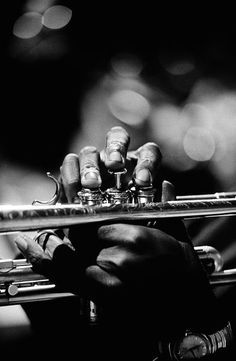
The Passion that we read on Palm Sunday is like a jazz score. Its truth is perceived between the notes and beyond the words. The key moments feature people doing seemingly senseless things in response to God’s call. This kind of “Call and response” is akin to the patterns often found in jazz music, with a soloist’s call answered by an ensemble’s passionate response. The symbolism of jazz spoke volumes of truth for musician Duke Ellington. He described his passion for jazz as the language he uses to talk to God. “Every man prays in his own language, and there is no language God does not understand,” he once wrote.
Like Duke Ellington, we’ve all wrestled with ways to respond passionately to God’s call. But the readings for Passion Sunday are a good opportunity to wonder, are we listening to and understanding God’s language? The language in question is Christ’s passion. The symbolism in these readings form a strange music designed to hit us in the heart.
Why did Jesus tell his disciples to bring him a previously unridden colt? Why did he ride it into Jerusalem? Why did people greet him with waving palms and shouts of hosanna to the King of peace? John’s gospel states his disciples did not understand this at first, but when Jesus had been glorified they remembered that these things were written about him and that they had done this for him (Jn 12:12-16).
Isaiah understood God’s jazz. He expressed it fluently, as he testifies in our first reading (Is 50:4-7):
The Lord GOD has given me a well-trained tongue, that I might know how to speak to the weary a word that will rouse them.
The people of Jerusalem were weary of the language of slavery that earthly kings made them understand all too well. But the idea of a king of peace willing to lay down his life so they may have freedom? This was new and beautiful music to them, and according to Mark’s account of the Passion (Mk 14:1—15:47), while Jesus was in Bethany visiting Simon the leper, one of them expressed her gratitude for it via her own wordless prayer:
A woman came with an alabaster jar of perfumed oil, costly genuine spikenard. She broke the alabaster jar and poured it on his head. There were some who were indignant. “Why has there been this waste of perfumed oil? It could have been sold for more than three hundred days’ wages and the money given to the poor.” … Jesus said, “Let her alone. … She has done a good thing for me. … She has anticipated anointing my body for burial. Amen, I say to you, wherever the gospel is proclaimed to the whole world, what she has done will be told in memory of her.”
And here we are in the 21st century, recalling that woman’s simple wordless passionate response to God’s call.
Then came every mass’s recurring theme—the bread and wine Jesus introduced as his body and blood … followed by Judas’s betrayal which was accompanied by the dissonance of a kiss … Jesus’s “I am” response to the high priest’s call-out about the claim to divine Sonship … Peter’s third denial punctuated by the trumpet of a rooster … the rising chorus of “Crucify him” … the psalm of abandonment Jesus cries with his dying breaths … and finally, our falling to our knees in response to that call.
The images our minds hear in Passion Sunday’s music represent God’s wordless call of love to us. How can we respond?
St. Francis of Assisi exemplified the beauty of all that jazz when he taught, “Preach the gospel at all times, and when necessary, use words.”
–Tom Andel